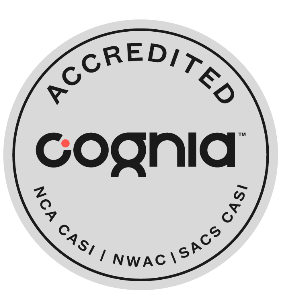ASSOCIATED ADMINISTRATIVE REGULATION:
400.01-1
ADOPTED:
11.15.2016
Boundary Violations / Inappropriate Conduct Scenarios
Definitions:
- Boundary violation: “means crossing verbal, physical, emotional, and social lines that a school employee must maintain in order to ensure structure, security, and predictability in an educational environment and has the potential to abuse the employee-student relationship.”
- Inappropriate Conduct: Any behavior by an employee or volunteer toward a student that would reasonably give the appearance of impropriety, regardless of whether such behavior is complained of by the student, regardless of whether the behavior is overtly sexual, and/or regardless of whether such behavior would constitute a crime.
Example Scenarios:
Examples of adult-to-student behavior that may, upon examination of a totality of the circumstances, constitute boundary violations and/or conduct under Policy-400.1 and lead to employee discipline, up to and including termination for cause, include, but are not limited to:
- Sexual invitations or requests for sexual activity in exchange for the following, but not limited to: grades, preferences, playing time on athletic teams, etc.;
- Physical displays of affection: (e.g., “full body” hugs; holding hands; kissing; caressing of hair, face, or clothing; suggestive dancing; and massages, etc.);
- Personal communication with a student for reasons unrelated to instruction or official school business. (e.g., exchanging personal e-mail, phone numbers, social media requests, and text).
- Telling risqué jokes to, or in the presence of students;
- Conversations or discussions with students that are sexually suggestive, sexually degrading, that imply sexual motives or intentions, or that pry into a student’s personal business, including sexual remarks or innuendoes about a student’s body or appearance; discussions about sexual experiences or exploits; spreading sexual rumors; questioning a student about his or her boyfriend, girlfriend, sexual experience and attitudes, etc;
- The use of sexual innuendoes, sexual profanity, or sexual slang in the presence of students;
- Isolated, one-on-one interactions with students out of the line of sight of others;
- Obstructing access, or the view, into classrooms, closets, or storage areas by locking doors when in a classroom or office alone with a student; covering windows with paper or other opaque material, etc;
- Drinking alcohol or taking illicit drugs in the presence of students; providing alcohol or drugs to students; or permitting students to drink alcohol or take drugs at school-sponsored activities, at the employee’s residence, or in any other context;
- Inviting a student to travel or go somewhere alone;
- Providing a student with gifts, money, cards, privileges, or other personal favors;
- Employing favoritism to a student;
- Taking students to lunch off-campus in the employee’s personal vehicle;
- Photographing individual students for a non-educational purpose or use;
- Requesting or encouraging students to “model;” taking or distributing photographs of individual students; or “promoting” students on Web pages or through other means, particularly where such activities contain sexual innuendo or content and are undertaken without the parent’s knowledge or consent;
- Hot-tubbing or playing inappropriate party games with students;
- Participating in, or condoning, inappropriate physical pranks, including but not limited to: teasing, or hazing such as “mooning,” “snuggies,” “wedgies,” bra-snapping, skirt
“flip-ups,” pinching, etc.; - Providing, paying for, attending, or covering up, medical appointments or procedures for a student, such as tests for pregnancy or sexually transmitted diseases (STDs); labor and delivery; or abortion;
- Viewing with a student sexually explicit or inappropriate media, programs, or content;
- Any sexual act of a criminal nature, including but not limited to, rape, attempted rape, statutory rape, sexual assault and battery, hazing, child sexual abuse, gratification of lust, or contributing to the delinquency of a minor.
Boundary violations do not include:
- Offering praise, encouragement, or acknowledgment;
- Offering rewards available to all who achieve;
- Asking permission to touch for necessary purposes;
- Giving pats on the back or shoulder;
- Giving side hugs;
- Giving hand shakes or high fives;
- Offering warmth and kindness;
- Utilizing public social media alters to groups of students and parents; or
- Contact permitted by an IEP or 504 plan.
This online presentation is an electronic representation of the Canyons School District’s currently adopted policy manual. It does not reflect updating activities in progress. The official, authoritative manual is available for inspection in the office of the Superintendent located at 9361 South 300 East Sandy, UT 84070.

